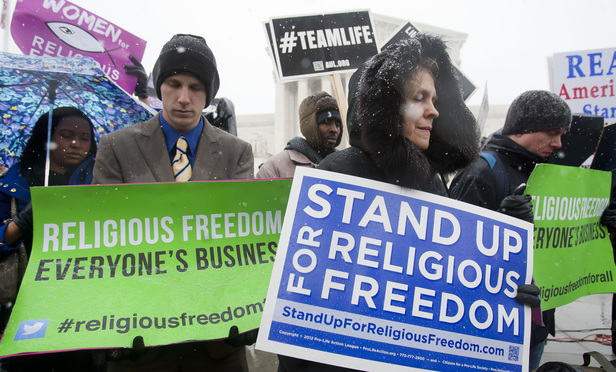Religious expression is often tangled up with religious belief. It can be controversial—especially at work. Take, for example, Christianity. The Bible just hit the No. 6 slot on the American Library Association’s list of the most challenged books. Christ himself said that his followers stand out from their surroundings like salt and light. The Christian faith requires action. The book of James leaves no room for discussion: “Don’t just listen to God’s word. Do what it says.” And Christ-followers bring their faith to work. Other religions echo the same sentiments. Let’s unpack how in-house counsel can help HR make the call between religious expression and harassment.
Title VII of the Civil Rights Act of 1964 protects religious belief and expression at work. It bans employment discrimination because of religious belief. A step further, Title VII requires employers to “reasonably accommodate” an employee’s religious observance or practice unless doing so would result in an “undue hardship” on the employer’s business.
This content has been archived. It is available through our partners, LexisNexis® and Bloomberg Law.
To view this content, please continue to their sites.
Not a Lexis Subscriber?
Subscribe Now
Not a Bloomberg Law Subscriber?
Subscribe Now
LexisNexis® and Bloomberg Law are third party online distributors of the broad collection of current and archived versions of ALM's legal news publications. LexisNexis® and Bloomberg Law customers are able to access and use ALM's content, including content from the National Law Journal, The American Lawyer, Legaltech News, The New York Law Journal, and Corporate Counsel, as well as other sources of legal information.
For questions call 1-877-256-2472 or contact us at [email protected]



